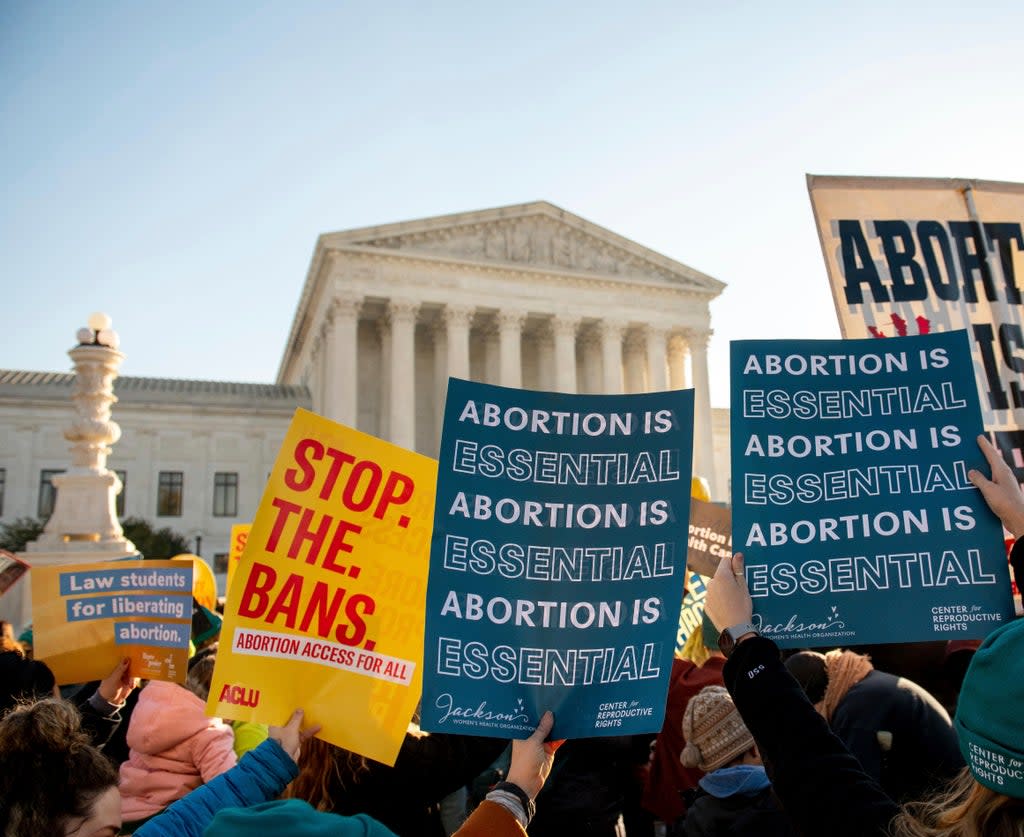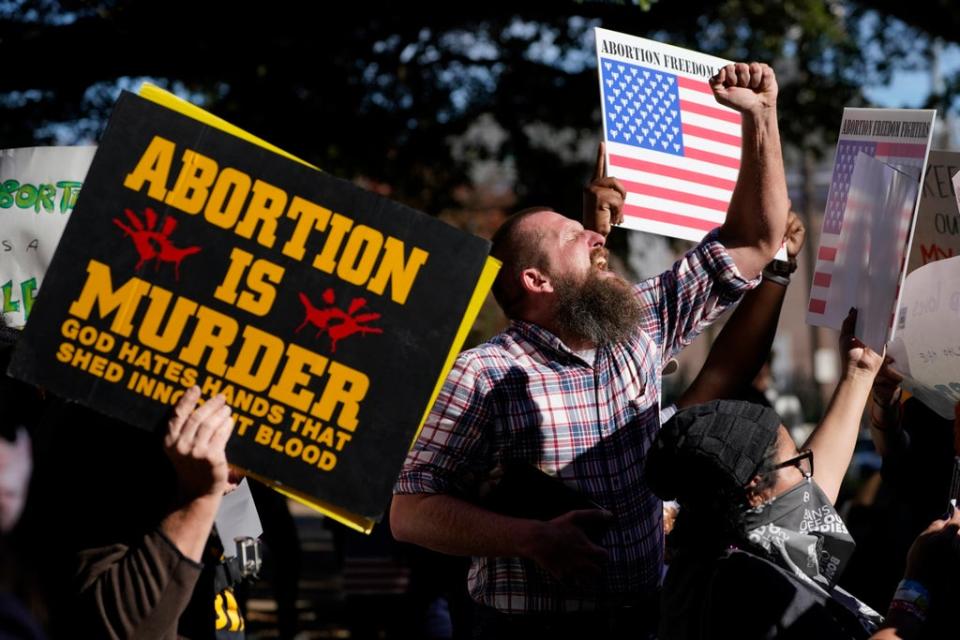US Supreme Court judges signal support for abortion limits in challenge to Roe v Wade

The US Supreme Court has signalled it will allow states to ban abortion much earlier in pregnancy - and may even overturn the nationwide right that has existed for nearly 50 years.
In the biggest challenge to abortion rights in decades, all six conservative justices indicated on Tuesday they would uphold a Mississippi law that imposes a 15-week termination limit.
Such a move would at the very least undermine the court’s historic 1973 Roe v Wade decision, which established a nationwide right to abortion at any point before a foetus can survive outside the womb - generally around 24 weeks.
There was also substantial support among the conservative justices for getting rid of Roe altogether, along with the 1992 Planned Parenthood v Casey ruling which reaffirmed it.
Justice Brett Kavanaugh - who was appointed by then President Donald Trump - suggested the court would be better off withdrawing completely from the abortion issue and letting states decide.
“Why should this court be the arbiter rather than Congress, the state legislatures, state supreme courts, the people being able to resolve this?” he asked. “And there will be different answers in Mississippi and New York, different answers in Alabama than California.”

Hundreds of demonstrators outside the court chanted for and against as the justices led arguments that could decide the fate of Roe v. Wade.
Chief Justice John Roberts, another conservative, was more interested in a less sweeping ruling that would uphold the Mississippi law but not explicitly overrule Roe and Casey.
“That may be what they’re asking for, but the thing at issue before us today is 15 weeks,” he said.
More than 90 per cent of abortions are performed in the first 13 weeks of pregnancy, well before viability, according to the federal Centers for Disease Control and Prevention.
Upholding the 15-week ban would mean rejecting the decades-old viability line. Abortion rights supporters say that would effectively overturn Roe and leave no principled line for when abortions might be banned.
The court’s three liberal justices said that reversing Roe and Casey would significantly damage the court’s own legitimacy.
“Will this institution survive the stench that this creates in the public perception that the Constitution and its reading are just political acts?” Justice Sonia Sotomayor asked.
Justice Stephen Breyer warned his colleagues they “better be damn sure” before they throw away the established abortion decisions.
Abortion would soon become illegal or severely restricted in roughly half the states if Roe and Casey are overturned, according to the Guttmacher Institute, a research organization that supports abortion rights.
Public opinion polls show support for preserving Roe, though some surveys also find backing for greater restrictions on abortion.
The outcome of court’s deliberations is unlikely to be known until next June.
Read More
Mike Pence asks Supreme Court to overturn landmark Roe v Wade abortion decision
Facebook removes 500 accounts linked to Chinese disinformation network

 Yahoo News
Yahoo News 
